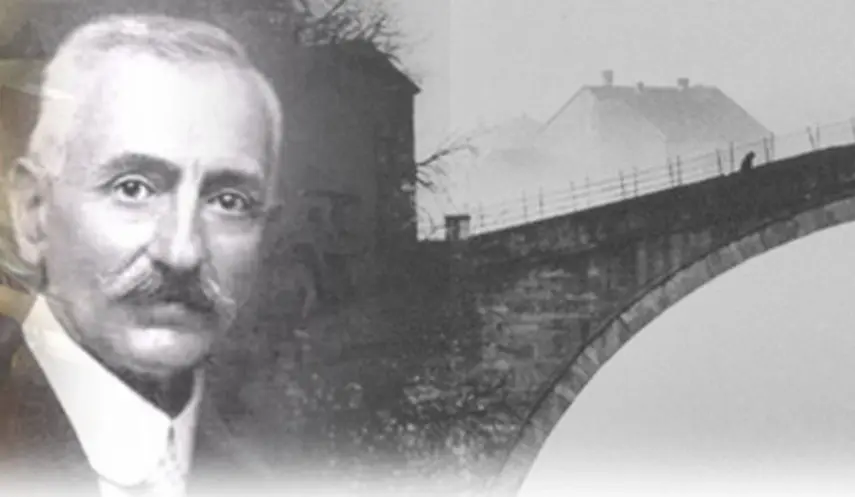ALEKSA ŠANTIĆ - LYRIC POET, ACADEMICIAN AND PATRIOT
Republika Srpska, Serbia - poet - anniversary
05/26/2025
11:08

BIJELJINA, MAY 26 /SRNA/ - Serb poet Aleksa Šantić /1868–1924/, author of anthology poems such as "Stay Here," "Emina," "Evening on the Islet," "Do Not Believe," and "Pre-Holiday Evening," was born on May 27, 1868.
Šantić was born in Mostar, where he spent most of his life. His father died during his early childhood, so he was raised in the household of his uncle Miho, known as Adža.
He had two brothers, Jeftan and Jakov, a sister named Persa, and a sister Zorica, who died in infancy.
Since he lived in a merchant family, his household did not have much understanding for his talent. He completed business school in Trieste and Ljubljana, and then returned to Mostar in 1883.
He found the city in a state of "unusual stillness," a consequence of the "suppressed Herzegovinian uprising against Austria". At first, he was rather withdrawn, kept the books in the family store, and read newspapers and books he could find in Mostar.
A few years later, he began his literary and social work. His most significant works were created at the end of the 19th and the beginning of the 20th century.
In early 1887, he became a contributor to the magazine Golub, and later to the magazines Bosanska Vila, Nova Zeta, Javor, and Otadžbina.
The following year, he founded the Serbian Singing Society Gusle and was later elected the first vice-president of the Mostar branch of Prosvjeta. He was part of the Mostar circle of writers gathered around the literary journal Zora, which he launched together with Jovan Dučić and Svetozar Ćorović.
During World War I, Austro-Hungarian authorities arrested him as a prominent Serbian nationalist.
At the beginning of his poetic career, Šantić was influenced by Serbian poets Branko Radičević, Jovan Jovanović Zmaj, and Vojislav Ilić, but he later developed his poetic style, marked by elegiac and patriotic themes.
Šantić reached the peak of his poetic maturity between 1905 and 1910, during which time his most beautiful poems were written.
Šantić's poetry is filled with strong emotions, sorrow of love, but also pain and defiance for the socially and nationally disenfranchised people to whom he belonged.
His muse stands at the crossroads of love and patriotism - between the image of an ideal beloved and that of a suffering nation.
His patriotic poetry is devoted to the homeland and the warmth of the hearth /"My Homeland"/, while in some of his most poignant poems, Šantić writes of the suffering of those who leave their homeland forever and depart to foreign lands /"Stay Here" and "Bread"/.
Šantić emphasizes suffering and martyrdom as the most important elements in the historical fate of the Serbian people /"We Know Our Fate"/.
The love poetry of the Mostar poet was strongly influenced by sevdalinka /a traditional Bosnian folk song/. The setting of his love poems includes gardens, blossoming trees, bathhouses /hamams/, and fountains, while the girls who appear in his verses are hidden beauties adorned with necklaces.
One such poem is "Emina" which has become part of the folk tradition and is sung as a sevdalinka.
Šantić was elected as a corresponding member of the Serbian Royal Academy on February 3, 1914.
He died of tuberculosis in Mostar on February 2, 1924.
Tags

RECEPTION HELD FOR NEW EUROPEAN BOXING CHAMPION IN UBO VERSION

KOVAČEVIĆ: SDS AND OPPOSITION WEREN'T LOOKING FOR PRESIDENTIAL CANDIDATE, BUT FOR SOMEONE WILLING TO LOSE ELECTIONS

BISHOP JOVAN: BISHOP'S PALACE IN PAKRAC HAS RICH CULTURAL LIFE



